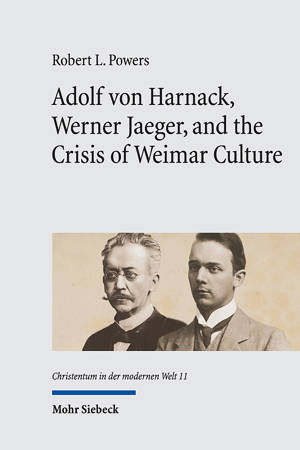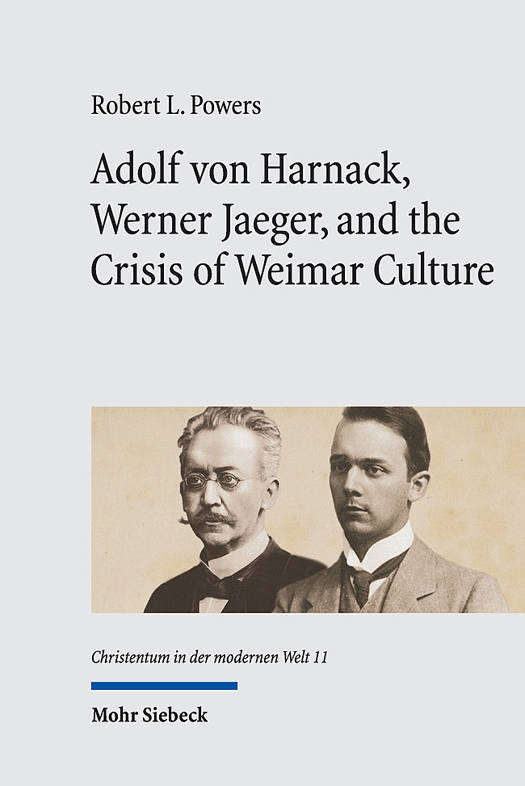
- Afhalen na 1 uur in een winkel met voorraad
- Gratis thuislevering in België vanaf € 30
- Ruim aanbod met 7 miljoen producten
- Afhalen na 1 uur in een winkel met voorraad
- Gratis thuislevering in België vanaf € 30
- Ruim aanbod met 7 miljoen producten
Zoeken
Adolf Von Harnack, Werner Jaeger, and the Crisis of Weimar Culture
Greco-Christian Humanism at the Crossroads of Tradition and Modernity
Robert L Powers
Hardcover | Engels | Christentum in der modernen Welt / Christianity in the Modern World CMW | nr. 11
€ 93,95
+ 187 punten
Omschrijving
The theologian Adolf von Harnack (1851-1930) and the philologist Werner Jaeger (1888-1961) bear witness to the rich, boundary-defying diversity of academic - and bourgeois - culture during the Weimar Republic. Separated in age by nearly half a century but united by common concern for pressing theological and societal problems and professional ties to the University of Berlin, Harnack and Jaeger both acted as representatives of theology and classical studies who sought to reassert the broad educational and political significance of their disciplines amid the cultural crisis occasioned by World War I and by the subsequent collapse of the Kaiserreich. Both moderates, Harnack and Jaeger set themselves the tasks of combatting political extremity and, most importantly, preparing their compatriots for proper self-government by deploying their unique brands of religious, philhellenic humanism.
Specificaties
Betrokkenen
- Auteur(s):
- Uitgeverij:
Inhoud
- Aantal bladzijden:
- 270
- Taal:
- Engels
- Reeks:
- Reeksnummer:
- nr. 11
Eigenschappen
- Productcode (EAN):
- 9783161639906
- Verschijningsdatum:
- 1/01/2025
- Uitvoering:
- Hardcover
- Formaat:
- Genaaid
- Afmetingen:
- 231 mm x 155 mm
- Gewicht:
- 557 g

Alleen bij Standaard Boekhandel
+ 187 punten op je klantenkaart van Standaard Boekhandel
Beoordelingen
We publiceren alleen reviews die voldoen aan de voorwaarden voor reviews. Bekijk onze voorwaarden voor reviews.











